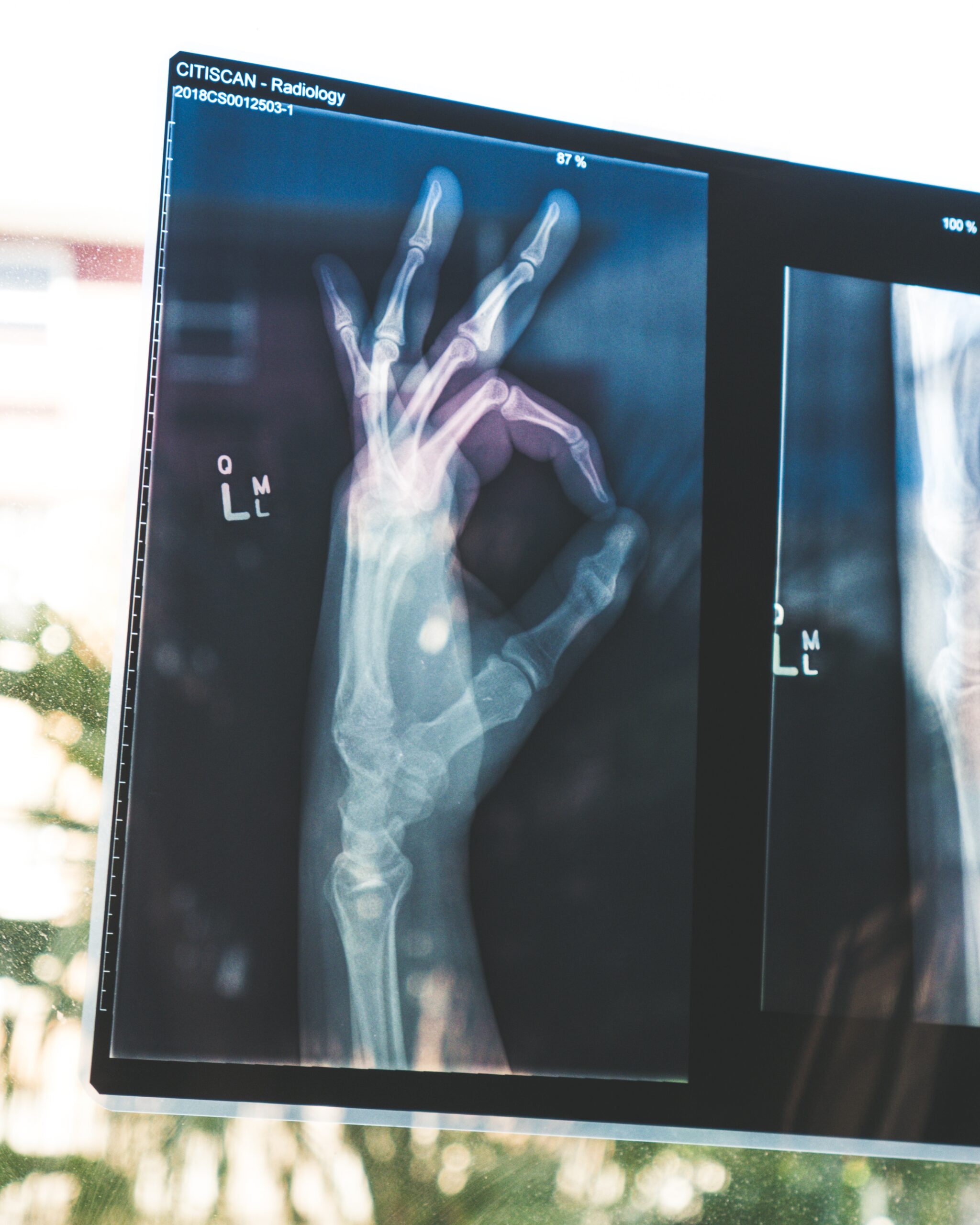Have you ever wondered if it’s possible to lose weight overnight? It’s a topic that has piqued the curiosity of many individuals on their weight loss journey. While losing weight overnight may sound like a dream come true, the reality is a bit more complex. In this article, we’ll explore the science behind weight loss and whether shedding those extra pounds can truly happen overnight. So, are you ready to uncover the truth behind this intriguing question? Let’s dive in and find out!

Factors Influencing Weight Loss
Caloric Deficit
One of the key factors that influence weight loss is maintaining a caloric deficit. This means consuming fewer calories than your body needs to maintain its current weight. When you create a caloric deficit, your body starts to use stored fat as a source of energy, resulting in weight loss over time.
Metabolic Rate
Your metabolic rate is the rate at which your body burns calories. Some people naturally have a faster metabolism, which means they burn calories more quickly. Factors such as age, gender, and genetics can affect your metabolic rate. By increasing your metabolic rate through exercise and strength training, you can enhance your weight loss efforts.
Physical Activity
Engaging in regular physical activity is crucial for weight loss. Exercise not only burns calories but also helps build lean muscle mass. The more muscle you have, the more calories your body burns even at rest. Aim for a combination of cardio exercises (such as running or cycling) and strength training (such as weightlifting) to maximize weight loss.
Sleep and Stress
Sleep quality and stress levels can significantly impact weight loss. Lack of sleep can disrupt hormones that regulate appetite, leading to increased cravings and overeating. Additionally, high stress levels can trigger emotional eating and hinder your weight loss goals. Prioritize getting enough sleep and finding healthy stress management techniques to support your weight loss journey.
Understanding Weight Loss
Body Composition
When we talk about weight loss, it’s essential to consider body composition. Losing weight isn’t just about a number on the scale; it’s about losing fat while preserving or building lean muscle mass. Monitoring body composition through measurements such as body fat percentage can provide a better understanding of your progress and overall health.
Water Weight
Weight fluctuations due to water retention are common and can mask actual fat loss. It’s important to differentiate between water weight and fat loss. Water weight refers to temporary changes caused by factors like high sodium intake or hormonal fluctuations. While it may contribute to fluctuations on the scale, it doesn’t necessarily reflect true fat loss.
Fat Loss
Fat loss is the ultimate goal when it comes to weight loss. It occurs when your body burns stored fat for energy. By creating a caloric deficit through diet and exercise, you prompt your body to use fat as fuel. This process takes time and consistency, but it leads to sustainable and long-term weight loss.
Weight Loss vs. Fat Loss
Water Weight Reduction
One of the common misconceptions about weight loss is the confusion between water weight reduction and fat loss. When you start a weight loss journey, it’s common to experience a rapid drop in weight. However, this initial weight loss is often attributed to water weight reduction rather than actual fat loss. It’s important to understand that lasting fat loss occurs gradually and requires continued effort.
Muscle Loss
Another risk of rapid weight loss is the potential loss of muscle mass. When you restrict calories too severely or don’t engage in strength training exercises, your body may start breaking down muscle tissue for energy. This can lead to a decrease in muscle mass and a slower metabolism. To avoid muscle loss, it’s crucial to combine proper nutrition, resistance training, and gradual weight loss.
Fat Burning Process
The fat burning process occurs when your body is in a caloric deficit. In this state, your body taps into its fat stores and converts them into usable energy. To optimize fat burning, it’s important to combine a sustainable caloric deficit with regular physical activity. This combination helps create the ideal conditions for your body to utilize stored fat as fuel, leading to gradual and lasting fat loss.
Overnight Body Changes
Digestive System
While it’s not possible to lose a substantial amount of weight overnight, your body does undergo various changes during sleep. The digestive system continues to work to process and metabolize food consumed during the day. However, any weight loss during sleep is primarily due to water loss through respiration and perspiration rather than fat loss.
Water Balance
During sleep, your body’s water balance can also fluctuate. You may lose water through respiration and perspiration, leading to a temporary reduction in weight. However, it’s important to note that this weight loss is only temporary and will be regained once you rehydrate.
Sleep Quality
Sleep quality plays a significant role in overall health, including weight management. Adequate sleep improves hormone regulation, reducing hunger hormones like ghrelin and increasing satiety hormones like leptin. By prioritizing quality sleep, you can support your weight loss efforts and maintain a healthier lifestyle.
Muscle Recovery
Sleep is a crucial time for your muscles to recover and repair after physical activity. During deep sleep, your body secretes growth hormone, which aids in muscle recovery and rebuilding. Sufficient sleep allows your muscles to repair and grow stronger, which can enhance fat burning and overall weight loss.
Temperature Regulation
During sleep, your body temperature naturally decreases as part of its circadian rhythm. This drop in temperature can influence metabolic rate and contribute to a small amount of calorie burn. However, the impact of temperature regulation on weight loss is minimal compared to other factors such as caloric deficit and physical activity.

Healthy Approaches to Weight Loss
Sustainable Caloric Deficit
Creating a sustainable caloric deficit is essential for healthy and long-term weight loss. It’s important to strike a balance between reducing calorie intake and providing your body with enough fuel to function optimally. Drastically cutting calories can lead to nutrient deficiencies and metabolic slowdown. Aim for a modest caloric deficit of around 500-1000 calories per day to promote steady but sustainable weight loss.
Balanced Diet
A balanced diet that includes a variety of whole foods is crucial for weight loss. Focus on consuming lean proteins, complex carbohydrates, healthy fats, and plenty of fruits and vegetables. This ensures you get all the essential nutrients your body needs while creating a calorie deficit. Avoid crash diets or restrictive eating patterns, as they are difficult to sustain and may lead to nutrient deficiencies.
Regular Exercise
Physical activity is a cornerstone of weight loss. Incorporate regular exercise into your routine to burn calories, build muscle, and improve overall fitness. Aim for a combination of cardiovascular exercises, such as running or cycling, and strength training to maximize calorie burn and muscle growth. Find activities you enjoy to make exercise a sustainable and enjoyable part of your lifestyle.
Adequate Sleep
Sufficient sleep is crucial for overall health and weight management. Aim for 7-9 hours of quality sleep each night. Prioritize creating a sleep-friendly environment, establish a consistent sleep schedule, and practice relaxation techniques to ensure you get restful sleep. Adequate sleep supports hormone regulation, reduces stress, and improves energy levels, all of which contribute to successful weight loss.
Potential Risks of Rapid Weight Loss
Muscle Loss
Rapid weight loss can increase the risk of muscle loss. When you lose weight too quickly, your body may break down muscle tissue for energy. This can lead to a decrease in muscle mass, a slower metabolism, and a higher likelihood of regaining lost weight. It’s important to prioritize gradual weight loss with a focus on preserving lean muscle mass through proper nutrition and strength training.
Nutritional Deficiencies
Severely restricting calories or following fad diets can result in nutritional deficiencies. These diets often eliminate entire food groups, leading to inadequate intake of essential vitamins, minerals, and macronutrients. To avoid nutritional deficiencies, focus on a balanced diet that includes a variety of nutrient-dense foods. Consider consulting a registered dietitian to ensure you’re meeting your nutritional needs during weight loss.
Metabolic Adaptation
Rapid weight loss can trigger metabolic adaptations in your body. When you restrict calories for an extended period, your body may lower its metabolic rate to conserve energy. This metabolic adaptation can make it harder to continue losing weight and easier to regain weight once you resume normal eating. Gradual weight loss and periodic reevaluation of your calorie intake can help mitigate this metabolic slowdown.
Gallstone Formation
Obesity and rapid weight loss increase the risk of developing gallstones. When you lose weight quickly, your liver releases excess cholesterol into the bile, which can contribute to gallstone formation. To prevent this, aim for slow and gradual weight loss, stay hydrated, and include foods high in fiber to promote healthy digestion.

Weight Loss Myths
Spot Reduction of Fat
Contrary to popular belief, spot reduction of fat is not possible. Doing targeted exercises for specific areas of the body will not lead to localized fat loss in those areas. Fat loss occurs throughout the body as a whole when you create a caloric deficit. Focus on overall weight loss through a combination of proper nutrition, regular exercise, and strength training.
Detox and Cleansing
Detox and cleansing diets are often marketed as quick fixes for weight loss. However, these diets typically involve severe calorie restriction or the use of detox drinks or supplements. While they may lead to short-term weight loss due to water loss, they are not sustainable or effective for long-term fat loss. Your body has natural detoxification mechanisms, and focusing on a balanced diet is a better approach to support overall health and weight management.
Magic Pills and Supplements
The weight loss industry is filled with claims of magic pills and supplements that promise quick and effortless weight loss. However, the majority of these products lack scientific evidence to support their claims. Healthy weight loss requires a combination of a balanced diet, regular exercise, and lifestyle changes. Consult with a healthcare professional before considering any weight loss supplements.
Optimizing Overnight Weight Loss
Evening Meal Choices
The choices you make for your evening meal can impact how you feel and potentially contribute to overnight weight loss. Opt for balanced, nutritionally dense meals that include lean proteins, fiber-rich carbohydrates, and healthy fats. Avoid heavy or spicy meals close to bedtime, as they can disrupt sleep and digestion.
Sleeping Environment
Creating a sleep-friendly environment is crucial for quality sleep and potential overnight weight loss. Keep your bedroom cool, dark, and quiet. Invest in a comfortable mattress and pillow that support restful sleep. Minimize exposure to electronic devices before bed to promote healthy sleep patterns.
Minimizing Stress
Stress can impact sleep quality and contribute to weight gain. Engage in stress-management techniques such as deep breathing exercises, meditation, or gentle stretching before bed to promote relaxation. Minimizing stress can improve sleep quality, supporting your weight loss journey.
Hydration
Proper hydration is important for overall health and potential overnight weight loss. Make sure to drink enough water throughout the day to stay hydrated. However, be mindful of excessive fluid intake close to bedtime, as it may disrupt sleep due to increased bathroom trips. Find a balance that allows for adequate hydration without interrupting your sleep.

The Role of Exercise
Impact on Metabolism
Exercise plays a crucial role in boosting metabolism and supporting weight loss efforts. Physical activity increases calorie expenditure, both during exercise and throughout the day due to the afterburn effect. Additionally, regular exercise promotes the growth and maintenance of lean muscle mass, which helps increase your resting metabolic rate.
HIIT and Strength Training
High-Intensity Interval Training (HIIT) and strength training are particularly effective for weight loss. HIIT workouts involve short bursts of intense exercise followed by periods of rest, maximizing calorie burn and boosting metabolism. Strength training helps build muscle, increasing your overall muscle mass, and enhancing fat burning.
Post-Exercise Calorie Burn
Exercise not only burns calories during the activity but can also lead to an increased calorie burn post-workout. This effect, known as excess post-exercise oxygen consumption (EPOC), happens as your body works to restore itself to pre-exercise levels. Engaging in regular exercise, especially high-intensity exercises, can further support weight loss goals.
Creating Sustainable Habits
Behavioral Changes
Creating sustainable habits is essential for long-term weight loss success. Identify and address any underlying behaviors or habits that may contribute to weight gain or hinder weight loss efforts. Focus on making gradual changes to your lifestyle, such as choosing healthier food options, incorporating regular exercise, and practicing stress-management techniques.
Setting Realistic Goals
Setting realistic goals is crucial for maintaining motivation and avoiding frustration. Instead of aiming for drastic and quick weight loss, set small, achievable milestones. Celebrate each milestone as a success, and remember that healthy weight loss is a gradual process. Progress may not always be linear, but as long as you stay consistent, you’ll reach your goals.
Consistency and Patience
Consistency and patience are key when it comes to sustainable weight loss. Focus on making long-term changes to your lifestyle rather than resorting to quick fixes. Stay consistent with healthy eating, regular exercise, and self-care habits. Embrace the journey and be patient with yourself, knowing that sustainable results take time and effort.
In conclusion, weight loss is influenced by various factors, including maintaining a caloric deficit, metabolic rate, physical activity, and sleep quality. Understanding the difference between weight loss and fat loss, as well as the potential risks of rapid weight loss, is crucial for developing healthy approaches to weight loss. Optimizing overnight weight loss involves making mindful choices regarding meals, sleep environment, stress management, and hydration. Regular exercise, including HIIT and strength training, plays a significant role in boosting metabolism and supporting weight loss efforts. Ultimately, creating sustainable habits, setting realistic goals, and practicing consistency and patience are key to achieving long-term weight loss success. Remember, weight loss is a journey, and focusing on overall health and well-being is just as important as the number on the scale.
